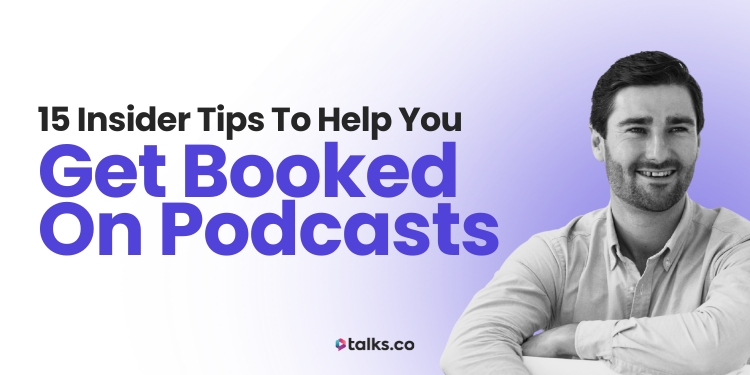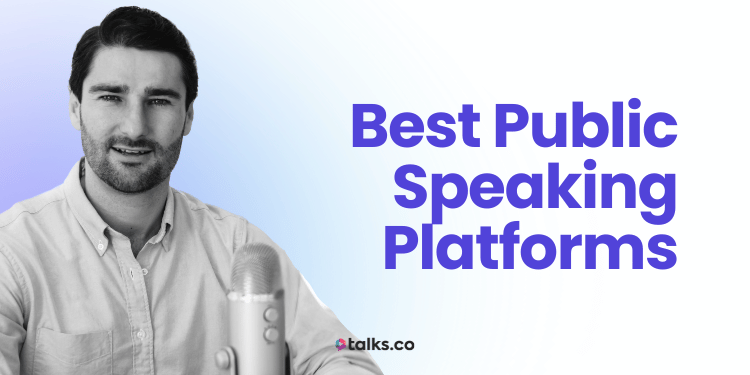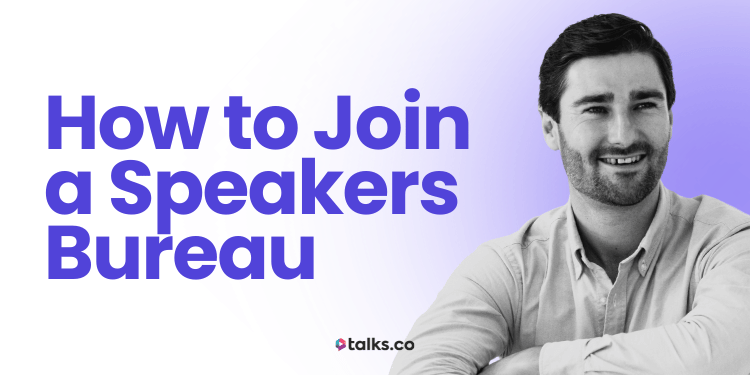When you get booked as a guest on a podcast, it can put your expertise in front of the right people without needing a big budget or a massive following.
But here’s the thing: not all podcasts are a good fit, and getting a “yes” from podcasters takes more than firing off a generic email.
You have to know how to pitch yourself to get booked as a podcast guest, showcase your value, and build relationships with podcasters that last long after the interview.
Stick around, and I’ll give you the exact steps to help you get booked on podcasts and get you the visibility you deserve.
How to Get Booked On Podcasts
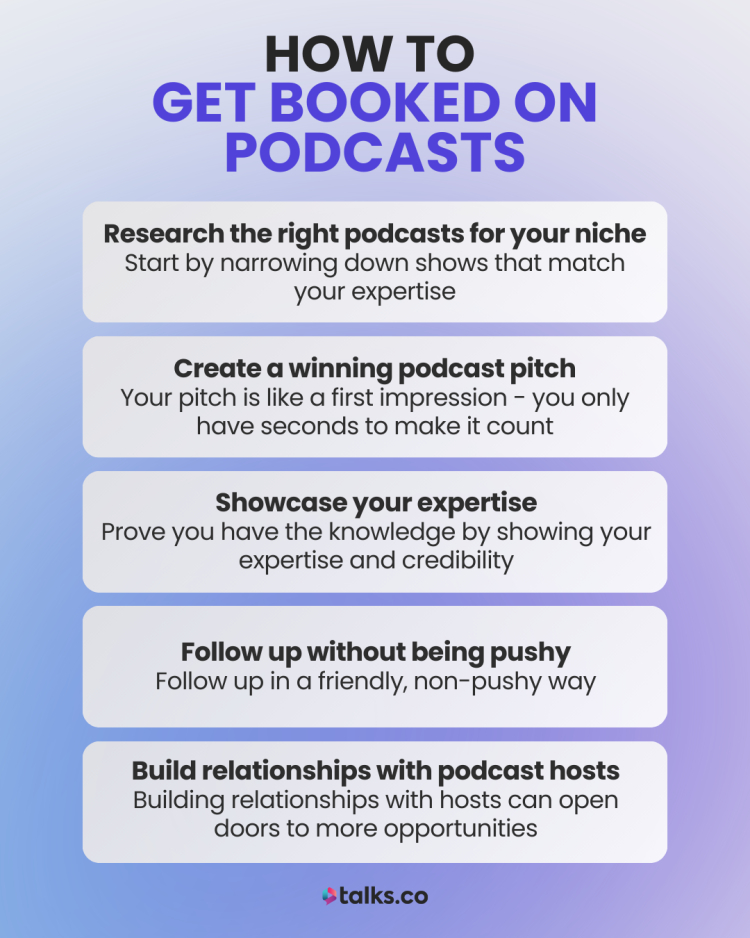
Getting booked as a guest on podcasts is one of the most effective ways to grow your audience, establish authority, and land more clients. You just need the right approach and some consistency.
1. Research the right podcasts for your niche
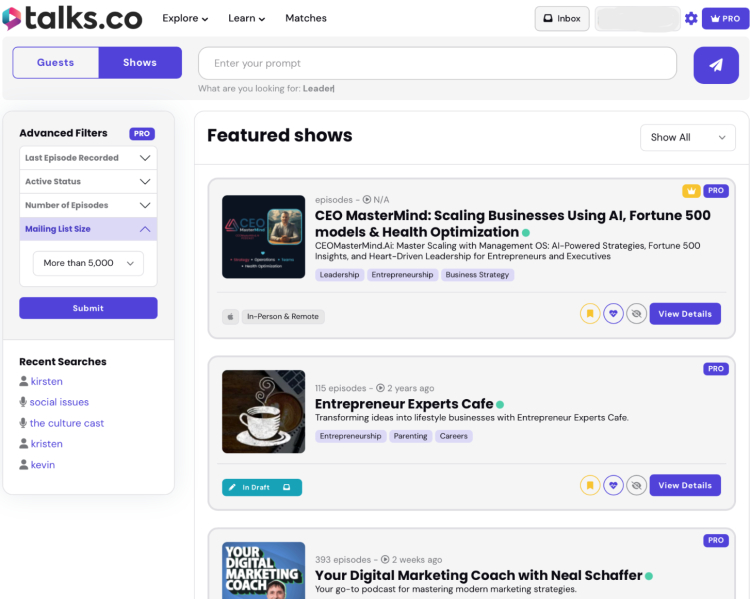
Start by narrowing down shows that match your expertise. Think about your audience: Are they listening to podcasts about fitness, mindset, or entrepreneurship?
Examples:
- Business coach: Search for relevant podcasts with keywords like “entrepreneurship,” “small business growth,” or “startups.”
- Health coach: Look for podcasts focusing on wellness, weight loss, or nutrition.
Great podcast tools like Talks lets you explore shows by category and connect with the right podcast hosts and shows in your niche. Or, go old school: Google “top [your niche] podcasts.”
2. Create a winning podcast pitch
Your pitch is like a first impression – you only have seconds to make it count.
What to include:
- A personal greeting (ditch the “Dear Podcast Host” opener – it’s too overused).
- A quick compliment on a recent episode (show you’ve done your homework).
- Why you’re the perfect guest (your expertise + what their listeners will gain).
- A clear CTA (e.g., “If you’re interested, I’d love to schedule a time for us to chat!”).
Example: “Hey [Host’s Name], I just listened to your episode on [Topic], and I loved your take on [specific point]. As a [your expertise], I’d love to share how [your topic] can help your listeners [specific benefit]. Let me know if you’re open to chatting more!”
3. Showcase your expertise
Why should a host book you? Because you’re a great guest who brings value to their podcast listeners. Prove you have the knowledge by showing your expertise and credibility through your podcast guest application.
- Mention relevant experience: “I’ve helped 50+ clients double their revenue using [specific strategy].”
- Highlight wins: “I’ve been featured in [other podcasts, publications].”
- Share social proof: Testimonials or even a link to your active social media can help position you as an expert guest.
Pro tip: Don’t oversell. If you’re early in your career, focus on the impact you can make rather than a laundry list of credentials.
4. Follow up without being pushy
Most pitches won’t get a response right away, and that’s normal. Follow up in a friendly, non-pushy way. Sometimes, podcasters are just busy, and your nudge moves you to the top of their list.
How to follow up:
- Wait a week or two after your first guest booking pitch.
- Send a short email, “Hey [Host’s Name], just checking in to see if you’d be interested in having me on your show. No worries if you’re swamped, but I wanted to make sure my email didn’t get lost!”
5. Build relationships with podcast hosts
Podcasting isn’t just a one-and-done deal. Building relationships with hosts can open doors to more opportunities, like referrals to other shows or collaborations.
- Engage with their content on social media: Comment, share, or DM them.
- Leave a thoughtful review for their podcast and let them know.
- Send a thank-you note after your appearance – it’s rare and makes you memorable.
Example: “Hey [Host’s Name], thanks again for having me on the show! I had a blast chatting about [topic]. Let me know if there’s anything I can share to promote the podcast episode.”
How to Find Podcasts to Be a Guest On
If you want to get booked on podcasts, you need to know where to look. It’s a bit like scouting for the best soccer team to join – you don’t just show up to any field; you go where the action matches your skills.
Use podcast directories and platforms
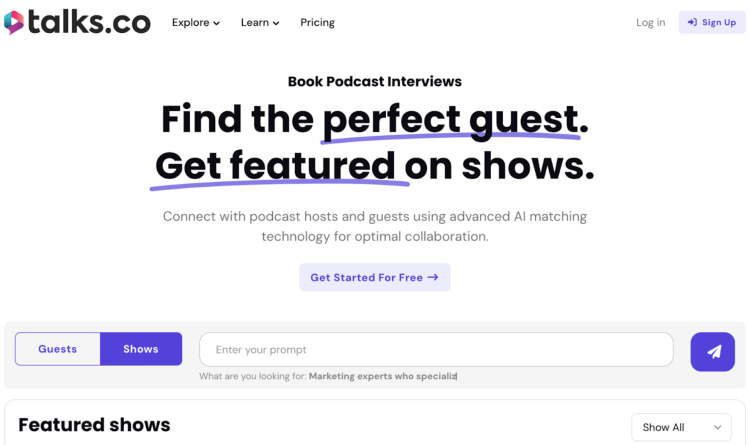
Podcast directories are your go-to scouting tool to find relevant podcasts. Start with these:
- Talks, Podmatch, or Matchmaker: These platforms pair you with hosts actively looking for guests.
- Apple Podcasts, Spotify, or Google Podcasts: Search by category to find shows that match your niche.
Search by niche or topic on social media
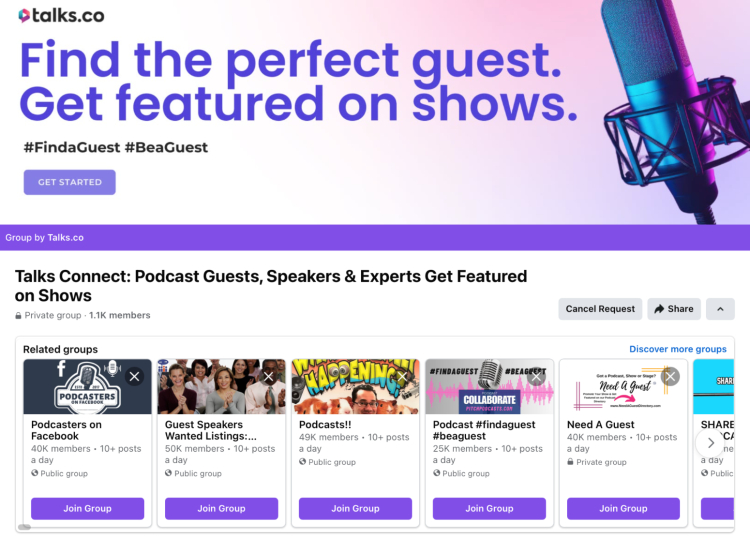
Podcasters love social media. Here’s where to look:
- Facebook groups: Join our Talks Connect group to connect with podcast hosts, find guest spots, and collaborate with industry experts. It’s the go-to community for expanding your reach and getting booked.
- Instagram hashtags: Use hashtags like #PodcastGuest or #BeAGuest.
- LinkedIn: Search for podcasts in your niche and reach out directly.
Example: “Hey [Host’s Name], I enjoyed your episode on [specific topic]. I’d love to bring my expertise on [your topic] to your show. Let me know if you’re open to it!”
Look for “guests wanted” listings
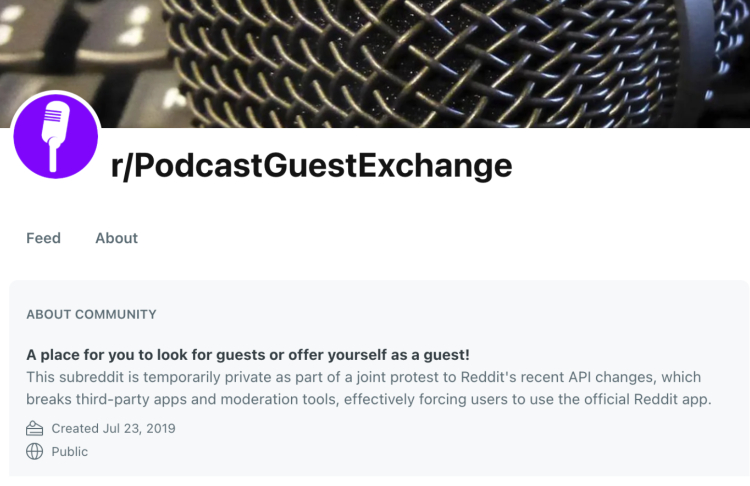
Some platforms and communities exist solely to connect hosts with guests:
- MatchMaker.fm and Podbooker: Browse podcasts looking for experts in your niche.
- Reddit and X: Check out Reddit’s r/PodcastGuestExchange or search hashtags like #PodcastGuestOpportunity.
How to Get on Podcasts as a Guest
To get booked on podcasts as a guest, you need the right setup and timing. But once you have the basics down, it’s a winning formula.
Understand what hosts are looking for
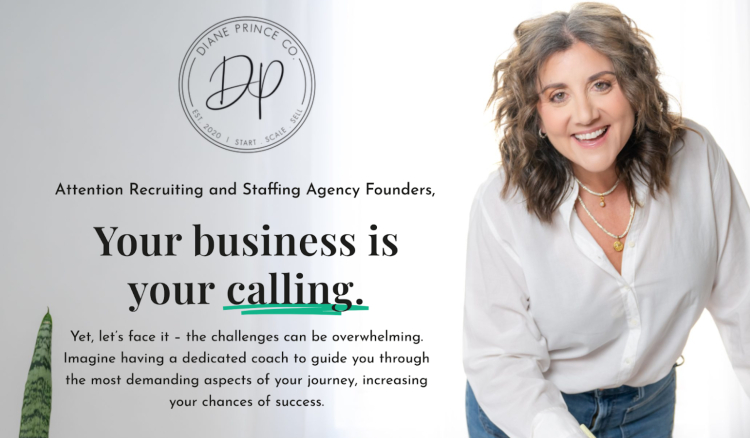
Podcast hosts aren’t just looking for someone who sounds smart. They want guests who:
- Bring unique insights or stories their audience hasn’t heard before.
- Can engage listeners (think: passionate, not salesy).
- Solve a problem or answer a question for their audience.
Example: Diane Prince coaches recruiting and staffing agency founders to scale their businesses and achieve successful exits. She’s built and sold five companies, including one for $28 million. Diane’s perfect for podcasts on scaling, exiting, or thriving in niche industries.
How to stand out:
- Research the podcast’s audience: What topics resonate with them?
- Listen to an episode or two: Get a feel for the host’s vibe and tone.
Pro tip: Hosts often mention their biggest audience challenges during episodes. Make a note and offer a solution when pitching yourself.
Craft an irresistible speaker one-sheet
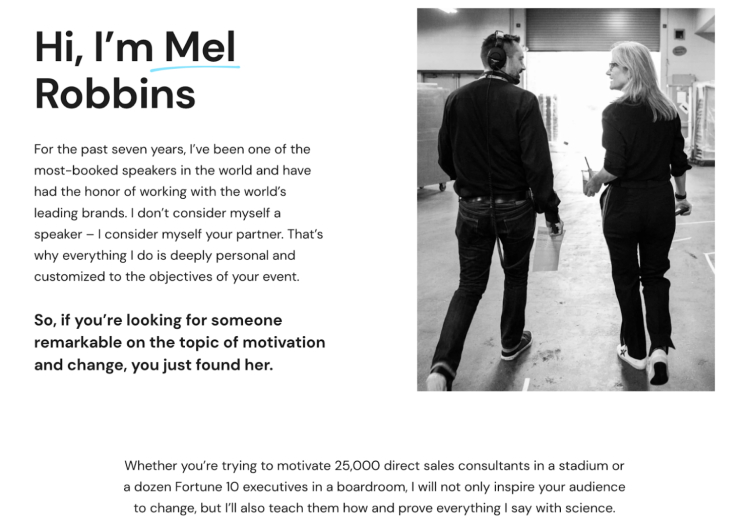
Think of a speaker one-sheet as your personal podcaster resume. It’s like showing a soccer coach your top achievements and experience to encourage them to sign you.
What to include:
- Professional photo: Choose a high-quality, clear headshot that reflects your brand.
- Your bio: Keep it short and focus on what makes you valuable as a guest.
- Speaking topics: Highlight three to five topics that align with the podcast’s niche.
- Links: Add your contact information, social profiles, your website, and past podcast episode appearances.
Example headline for a speaker one-sheet: “Helping Coaches and Experts Build Predictable Income Through High-Ticket Programs.”
Leverage your unique insights
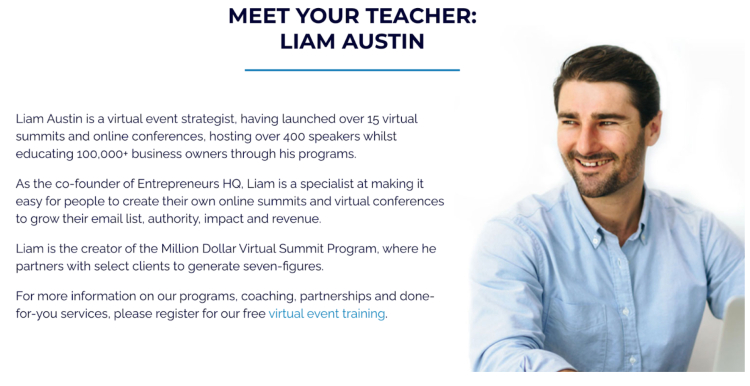
Tie your story to the podcast’s theme. Sharing real-life experiences makes you memorable and relatable. Prepare for your podcast interview by asking yourself:
- What’s a lesson you’ve learned in your journey that could help others?
- What’s something unexpected about your path?
Example: As a former pro soccer player with Wollongong Wolves and Sydney United, I learned teamwork and discipline – skills that shaped my entrepreneurial journey.
From leading a 70-year-old print publication into the digital era to launching multi-million-dollar initiatives for an ASX-listed company, I’ve seen how resilience on the field mirrors overcoming challenges in business. It’s all about bouncing back, staying focused, and pushing through the odds.
Make a personal connection with hosts
Cold pitches feel… well, cold. Warm up your approach by building a genuine connection first.
Steps to connect:
- Follow the host on LinkedIn, Instagram, or Facebook. Like and comment on their posts.
- Share an episode you enjoyed and tag them in it.
- Send a pitch that feels personal, not copy-pasted.
Example pitch template:
“Hey [Host’s Name], I’ve been a big fan of your podcast, especially your recent episode about [specific topic]. It got me thinking about how [your expertise] could complement that conversation.
I’d love to bring value to your audience by sharing [specific topic or story]. Here’s a bit about me: [Quick bio]. Let me know if you’re open to exploring this!”
How to See How Many Listeners a Podcast Has
If you’re looking to get booked on podcasts, you want to make sure the show’s audience is a good match before you sign up.
Ask the host for listener metrics
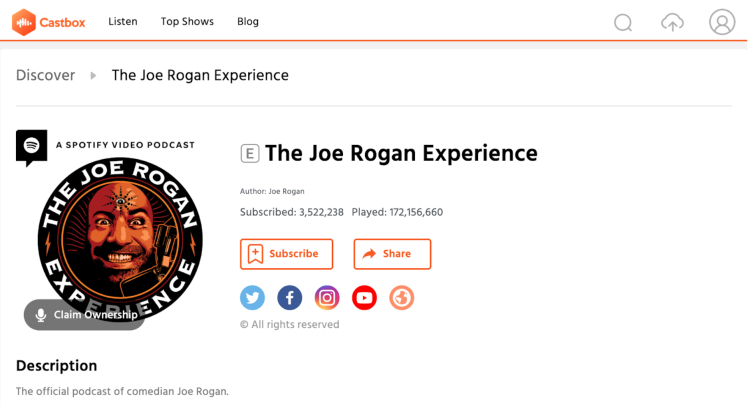
Ask the host for their listener statistics. If they’re serious about having guests on their show, they should be open to sharing this info.
Don’t be afraid to ask about things like average listens per episode or how many downloads they get each month. This info is crucial because you want to know if you’re playing in front of a packed stadium or a small crowd.
Example: “Hey, I’d love to know a bit more about your audience. Can you share your monthly downloads or listener engagement?”
Look for podcast charts and rankings
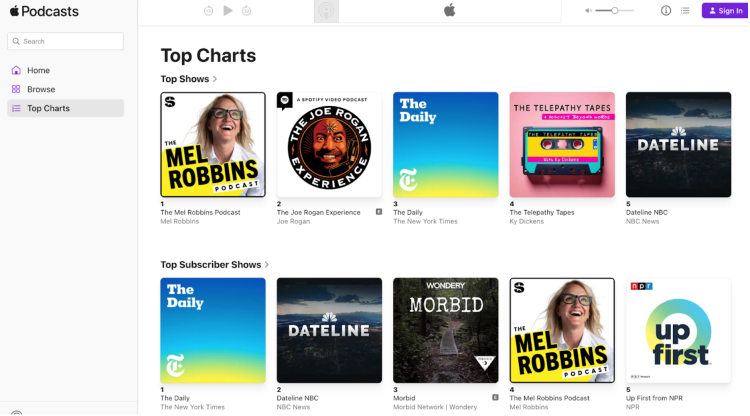
Podcasts don’t always come with obvious metrics upfront, but you can use public charts to get an idea. Sites like Apple Podcasts, Spotify, and Podchaser offer rankings for top shows in different categories. If the podcast is ranked high in its niche, chances are it’s got a solid listener base.
Check social proof
If a podcast has lots of reviews and ratings, that means people are listening and, more importantly, interacting. Listen to how engaged the audience is.
A podcast with 500+ 5-star reviews on Apple Podcasts is likely a winner. You can also see how active the listeners are by checking the podcast’s Instagram or Facebook.
If the engagement is high and the comments are rolling in, it means the audience is there and actively participating.
Use tools to estimate audience size

If all else fails, there are tools that can give you an estimate of a podcast’s reach. Tools like Listen Notes and Podtrac can help you get a rough idea of a show’s audience size based on things like downloads, mentions, and public metrics.
How to Get Invited to a Podcast
Getting invited to a podcast is exciting, rewarding, and totally possible with the right game plan.
Position yourself as a go-to expert
If you want to be featured on podcasts, you need to stand out as someone worth listening to.
Start by defining your niche. Are you a health coach who helps burnt-out professionals reclaim their energy? A mindset coach guiding entrepreneurs through self-doubt?
Be crystal clear about what you do and who you help. Show off your expertise and give potential hosts a reason to say, “We need this person on the show.”
Collaborate with hosts on social media
If you want podcast hosts to notice you, hang out where they are: social media.
- Follow them: Follow podcast hosts in your niche and look for shows that align with your expertise.
- Engage with their content: Comment on their posts, share their episodes, and add meaningful insights. Don’t just say “Great episode!” Instead, add value: “I loved your take on X topic – it’s so relevant to what my clients are struggling with right now.”
- Show genuine interest: Listen to their podcast and mention specific episodes in your comments. For example: “Your episode on imposter syndrome really resonated with me. I’ve seen the same thing with my clients – it’s such an important topic.”
Send a memorable introduction
Reaching out to podcast hosts is a lot like applying for a dream job: you need to be professional but also stand out as a good podcast guest.
Example email outreach template:
Hi [Host’s Name],
I’m a huge fan of [Podcast Name], especially your recent episode on [specific topic]. As a [your expertise], I work with [specific audience] to help them [specific result]. I think your audience would love actionable tips on [your proposed topic].
Here’s a quick snapshot of what I can share:
- [Bullet point 1]
- [Bullet point 2]
I’d love to explore how I can bring value to your show. Let me know if you’re open to a chat!
Cheers,
[Your Name]
How Much Do You Get Paid for Podcasts
Not every podcast pays its guests. In fact, most don’t. But before you cross it off your list, think about what “compensation” really means. It’s not just cash – it’s also exposure, connections, and credibility.
For example, if you’re on a podcast with 50,000 dedicated listeners in your niche, you’ve just been handed a chance to speak directly to people who already care about what you do. That’s a marketing goldmine.
That said, some podcasts do offer paid guest appearances, especially if they’re part of a bigger platform, are sponsored, or feature prominent guests. Payment could range from a couple of hundred bucks to thousands, depending on the show’s reach and budget.
Negotiate when there’s an opportunity
If a podcast does pay guests, don’t be shy about negotiating. Maybe the host isn’t offering cash, but there’s something else on the table. Ask about things like:
- Covering travel or accommodation if it’s an in-person recording.
- Sharing the audience email list after your episode airs (a long shot, but worth a try!).
- Featuring your offers or links in their show notes.
Leverage your appearance for business growth
Even if you don’t get paid upfront, a podcast appearance you nail is another step toward growing your business.
- Build authority: If you’re on five podcasts in your niche, people start seeing you as the go-to expert. That kind of authority attracts clients.
- Repurpose content: Take the episode and slice it into smaller clips for your social media. Post quotes, soundbites, or even a behind-the-scenes pic of you recording. It keeps you top of mind with your audience.
- Boost referrals: Podcasters talk to other podcasters. If you’re an engaging guest, they’ll recommend you to their network, opening up more doors for you.
Do Guests Pay to Be on Podcasts?
Yes, sometimes guests do pay to be on podcasts. Some podcast hosts charge guests for a simple reason: running a podcast isn’t cheap. There are hosting fees, equipment costs, editing, and time spent producing the episodes. Charging guests can be one way to offset those expenses.
This usually happens on shows with:
- Highly targeted audiences: If the podcast serves a very specific niche – like health coaching for new moms or productivity hacks for CEOs – hosts know their audience is valuable.
- Massive listenership: Think top-tier podcasts with thousands (or millions) of downloads per episode. Paying for a spot here can put your name in front of an audience that could genuinely move the needle for your business.
- Monetization models: Some podcasts function like media platforms and offer paid guest spots as part of their content marketing and revenue strategy.
The Guest Seat is Waiting for You
One of the smartest ways to grow your brand and connect with your ideal audience is to get booked on podcasts.
Focus on connecting with hosts whose audiences align with your message, craft pitches that highlight the value you bring, and don’t underestimate the power of building genuine relationships.
Ready to make things easier and finally get booked on podcasts without the hassle? Sign up for your free Talks account and connect with podcast hosts who are already searching for a great podcast guest like you.
The mic’s ready. Let’s get you in the guest seat!
